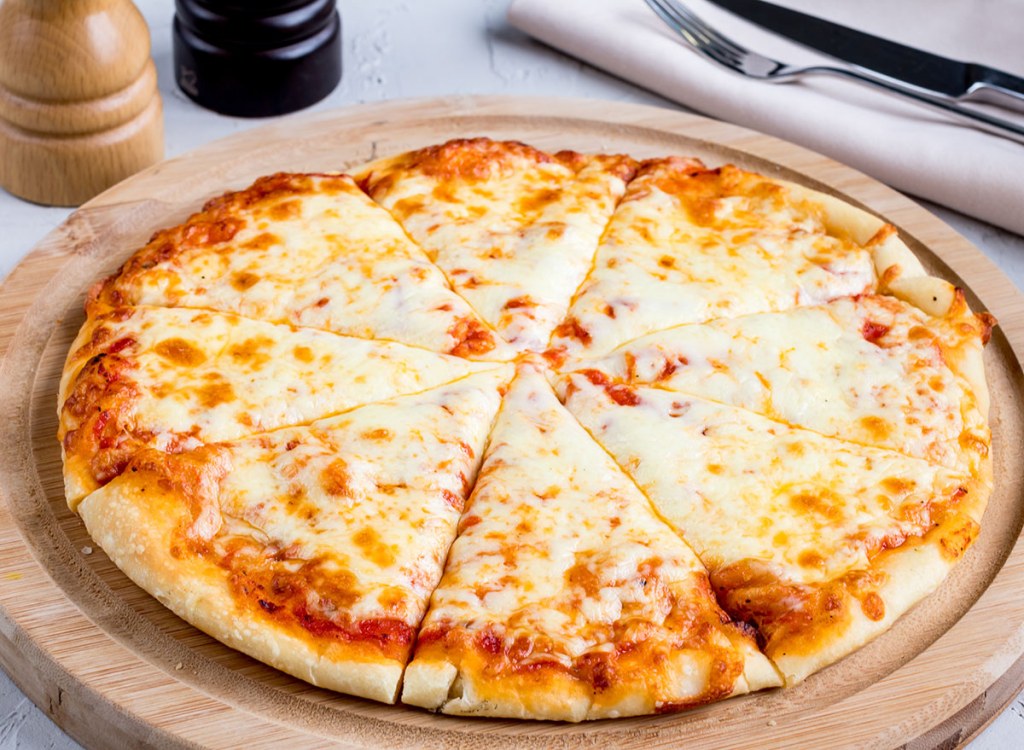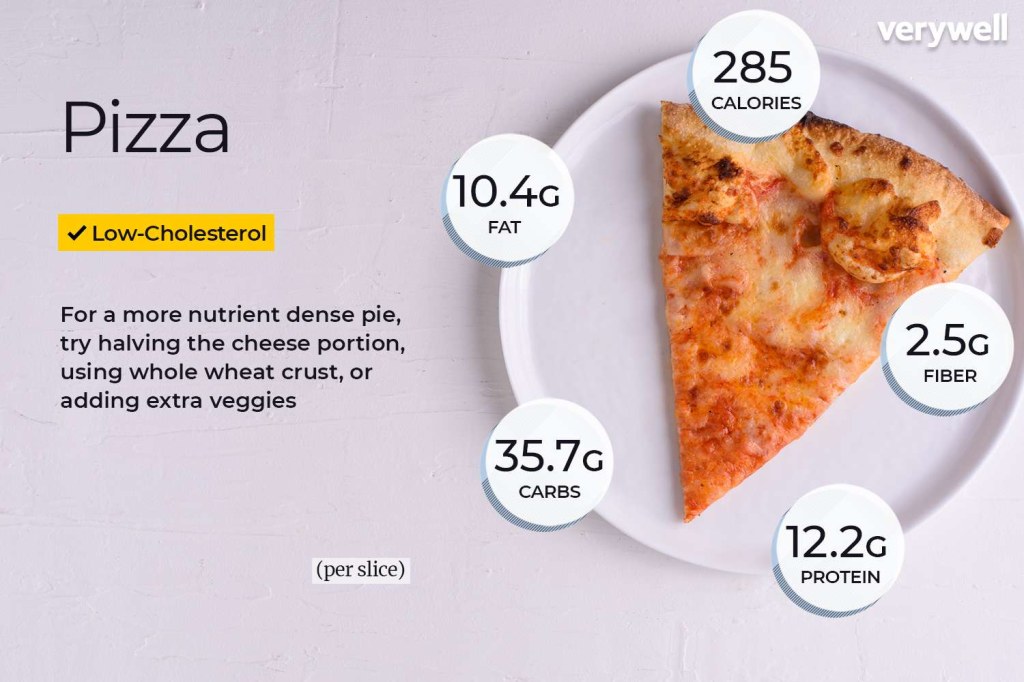Unveiling The Truth: Is Cheese Pizza Healthy? Discover Now And Make The Right Choice!
Is Cheese Pizza Healthy?
Introduction
Hello, Cheese Pizza lovers! Are you curious to know whether your favorite food is healthy or not? In this article, we will explore the question: Is cheese pizza healthy? and provide you with all the information you need. So, sit back, relax, and let’s dig deep into the world of cheese pizza!
2 Picture Gallery: Unveiling The Truth: Is Cheese Pizza Healthy? Discover Now And Make The Right Choice!
Overview
Before we delve into the details, let’s have a quick overview of what we will cover in this article. Firstly, we will discuss the nutritional value of cheese pizza, including its calorie and nutrient content. Then, we will explore the pros and cons of consuming cheese pizza, along with its potential health benefits and risks. To wrap it up, we will answer some frequently asked questions about cheese pizza’s healthiness. So, without further ado, let’s get started!
Nutritional Value of Cheese Pizza

Image Source: eatthis.com
🧀🍕
When it comes to the nutritional value of cheese pizza, it’s important to consider its ingredients. A typical slice of cheese pizza contains a combination of dough, tomato sauce, cheese, and sometimes additional toppings. Let’s break down the nutritional components:
Calories

Image Source: verywellfit.com
One slice of cheese pizza, on average, provides around 285-300 calories. However, the exact calorie content may vary depending on the size and thickness of the slice, as well as the type and amount of cheese used.
Carbohydrates
A slice of cheese pizza typically contains around 30 grams of carbohydrates. These carbohydrates primarily come from the pizza crust, which is made from refined flour. It’s worth noting that consuming excessive amounts of refined carbohydrates may contribute to weight gain and other health issues.
Protein
Protein is an essential nutrient for our body, and cheese pizza does provide a decent amount of it. A single slice of cheese pizza contains approximately 12 grams of protein, which can help support muscle growth and repair.
Fat
The fat content in cheese pizza mainly comes from the cheese and any additional toppings. A slice of cheese pizza typically contains around 10 grams of fat. While some fats are necessary for our body, it’s important to consume them in moderation to maintain a healthy diet.
Vitamins and Minerals
Cheese pizza does offer some essential vitamins and minerals, albeit in small amounts. The tomato sauce provides vitamin C and lycopene, while the cheese contributes calcium and phosphorus. However, it’s important to note that these nutrients are not significant enough to rely solely on cheese pizza for meeting your daily requirements.
The Pros and Cons of Cheese Pizza
🧀🍕
Now that we have discussed the nutritional value of cheese pizza, let’s explore its pros and cons:
Pros of Cheese Pizza
1. Convenience: Cheese pizza is readily available and can be a convenient option for a quick meal or snack.
2. Source of Protein: The cheese and possibly other toppings provide a good source of protein.
3. Enjoyment: Pizza is loved by many, and enjoying a delicious slice can bring happiness and satisfaction.
4. Versatility: Cheese pizza can be customized with various toppings to suit individual preferences and dietary needs.
5. Social Food: Sharing a pizza with friends and family can create a sense of togetherness and enjoyment.
6. Calcium Intake: The cheese in pizza contributes to calcium intake, which is important for maintaining healthy bones and teeth.
7. Moderation: Enjoying cheese pizza in moderation can be a part of a balanced diet without causing harm.
Cons of Cheese Pizza
1. High in Calories: Cheese pizza can be calorie-dense, which may lead to weight gain if consumed excessively.
2. Refined Carbohydrates: The crust of cheese pizza is often made from refined flour, which lacks fiber and may spike blood sugar levels.
3. Sodium Content: Cheese and other toppings in pizza can be high in sodium, which may contribute to high blood pressure in sensitive individuals.
4. Unhealthy Toppings: Some toppings commonly added to cheese pizza, such as processed meats, can be high in saturated fats and additives.
5. Potential for Overeating: The deliciousness of cheese pizza may lead to overeating, making it harder to maintain a balanced diet and portion control.
FAQs (Frequently Asked Questions) about Cheese Pizza’s Healthiness:
1. Is cheese pizza a good source of calcium?
Yes, cheese pizza can contribute to your calcium intake due to the cheese used as a topping.
2. Can cheese pizza be included in a weight loss diet?
While cheese pizza can be enjoyed in moderation, it’s important to consider its calorie content and overall nutritional value when trying to lose weight.
3. Is thin-crust cheese pizza a healthier option?
Thin-crust cheese pizza often contains fewer calories and carbohydrates compared to thick-crust pizza, making it a relatively healthier choice.
4. Are vegetarian cheese pizzas healthier than those with meat toppings?
In terms of reducing saturated fat intake, vegetarian cheese pizzas can be a healthier option. However, it depends on the specific toppings used.
5. Can cheese pizza be part of a balanced diet?
Absolutely! Enjoying cheese pizza as part of a balanced diet, along with other nutritious foods, can be a healthy approach to eating.
Conclusion
🧀🍕
In conclusion, cheese pizza can be a part of a healthy diet when consumed in moderation. It provides essential nutrients, such as protein and calcium, and can be enjoyed as a convenient and versatile meal option. However, it’s important to be mindful of portion sizes and choose healthier toppings to maximize its nutritional benefits. As with any food, balance and moderation are key. So, go ahead and savor that cheesy slice of goodness, but remember to make overall healthy choices in your diet. Cheers to cheese pizza!
Final Remarks
Disclaimer: The information provided in this article is for educational purposes only and should not replace professional medical advice. If you have any specific health concerns or dietary restrictions, it’s always best to consult with a healthcare professional or registered dietitian. Enjoy your cheese pizza responsibly!
This post topic: Cheese Pizza


